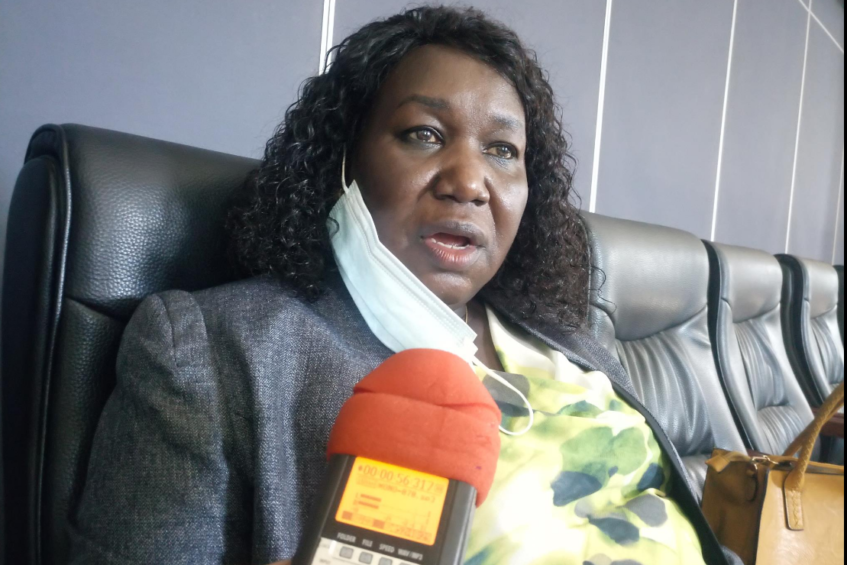
Dr. Esterina Novello, Chairperson of the South Sudan HIV/AIDS Commission speaks to Eye Radio on June 6, 2021 in Juba, Credit|Charles Wote/Eye Radio
South Sudan is among the countries registering increased new HIV infections in the region – and is unlikely to achieve the Global Agenda of Zero Infections by 2030, says the head of the country’s HIV/AIDS commission.
Dr. Esterino Novelo, the Chairperson of the South Sudan HIV and Aids Commission says the country’s new HIV infections have risen to 35 percent in 2022. This is up from the 23 percent infection rates of last year.
per 17,000 tests positive for the virus per year.
Doctor Novelo revealed that the disease infection rate has shot up in Lakes state – at 5.4 percent, making it the second state with the highest infection rate after Western Equatoria State.
Speaking during the 6th Governors Forum in Juba on Wednesday, Dr. Novelo says the rising infection rate is due to inadeguate budget for the commission, and high illiteracy rate in the country.
“We need to go out and make them aware of the dangers of HIV but we are unable to do that because of lack of resources,” she said.
Despite having the highest HIV prevalence, West Equatoria State’s infection rate of the virus has dropped from 7.2 percent to 6.4 percent in 2022.
Meanwhile, Doctor Novelo stated that the prevalence of the epidemic is also high (3.5) among the uniformed men of the armed forces.
There are currently around 200, 000 people living with the virus in the country.
Doctor Novelo says, 80 percent of the patients have currently suppressed the virus due to adherence to treatment.
She warns of an increase in new infections as the commission is underfunded and reduces donors’ support, making it difficult for the commissioner to create awareness campaigns.
“The knowledge about HIV is low in the communities, and the other contributing factor is the high illiteracy rate.”
“Most of our people especially women are with a high prevalence of HIV because they are less educated. So now it has become another problem to address the issue of knowledge because most of them can’t read.”
She says young people, mainly boda-boda riders and refugees among others, are mostly at risk of the epidemic.
Support Eye Radio, the first independent radio broadcaster of news, information & entertainment in South Sudan.
Make a monthly or a one off contribution.
Copyright 2024. All rights reserved. Eye Radio is a product of Eye Media Limited.